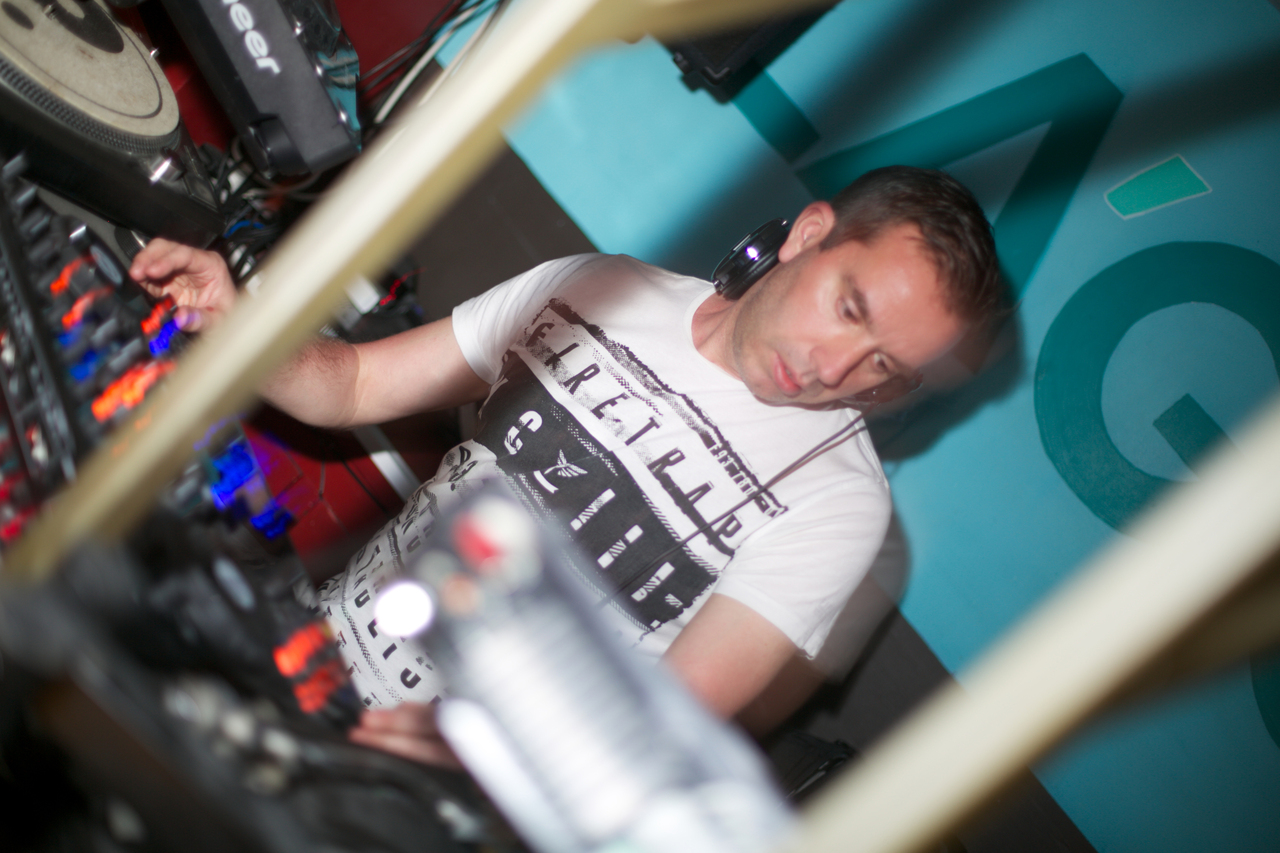Paul Hunter is an Audio Production lecturer at SAE’s Liverpool campus and a DJ, producer and remixer with huge amounts of industry experience.
His achievements include signing tracks to labels including Mute and Ministry of Sound while also reaching number one in the US Billboard charts with his dance act, Desert.
Paul has also toured the world as a DJ for the super club Cream, playing regularly at the main venue in Liverpool and holding residencies in Ibiza, Tenerife, and Cyprus.
We caught up with Paul to learn more about his music industry adventures alongside his experiences in music education and sharing his insights with SAE’s students. If you’re interested in joining our Audio Production course, contact our team.
How did you start off in electronic music?
I used to go to nightclubs in Liverpool, particularly a club called Quadrant Park in Bootle.
I’d been to other clubs but that was the first electronic dance music club. This was where I met another SAE Audio Production Tutor who works at the Liverpool campus, Paul Pringle. At the time, I was buying records and he was just getting into buying samplers and keyboards. We ended up hooking up and making our first track shortly after.
The remarkable thing about Quadrant Park was its location in Bootle. The DJs were Jon Kelly, Andy Carroll, Mike Knowler, they were the big ones. Then James Barton who went on to launch Cream.
I was buying records then but never saw myself as a DJ, I was just a record lover. But I ended up playing as a warm up DJ at a bar in Liverpool’s city centre, and from there getting gigs with Cream. My first gig with them was going to Hong Kong – which was mental.
So you went on tour representing the brand?
I used to tour as a DJ for Cream for years, I wasn’t a resident – but I used to regularly feature in the club twice every month. I was a resident DJ at MelloMello, the Cream pre-bar.
My sound was US house and I really loved doing the warm up at the club. As soon as the doors opened, people would be coming through and I’d be able to create a groove and journey.
I also used to work in 3 Beat Records for a number of years and would pick up records from there. It was massively exciting. Talking about it now, it brings back some great memories.
How did you progress your career?
I carried on producing, I was working with my mate Paul and put tracks out, one went to number one in the US Billboard charts, that was our biggest accolade. It was weird really as the music I’d DJ wasn’t similar to the music I’d make. In the studio, we fashioned a different sound. Now we’re a lot more focused on what we want to create and have a clearer direction. Back then, we went with the flow.
How did the hit come about?
This was with Desert. There was this guy from Mute Records who ran Future Groove, this sub label. We did this track, he loved it, they signed it – I’m never sure why it was a hit, it just seemed to catch a moment in time. I ended up working at 3 Beat for a while too. I had a flat in town with a window that faced the shop, then above that was the commercial studio. I’d just walk around the corner, and I’d be in work.
How did you get into music education?
I was getting to the age where I felt like I needed something slightly steadier, saw a role, applied and ended up getting it. I’ve worked for various colleges over the years and have been at SAE for more than a decade now.
It’s busy but it’s good, I really enjoy it. It feels like you’re giving something back to the emerging talent coming through. I work across different areas of music production, from desktop software and Ableton to lectures on music business and cultural industries.
Do you have any advice for aspiring music producers?
Yes – learn your craft – and don’t think making music is about getting it out, you should be trying to do it until it’s right. If that takes a week, great, if it takes a year, that’s how it is.
Many emerging producers are putting music out now before it’s ready – you can be the swiss army knife of production with all these digital platforms in our current age and not enough people learn their craft properly. It’s an art. Learn as much as you can and be aware that you never stop learning. I’ve been doing it for years and every day I’ll find something new that excites me.
Study Audio production at SAE
At SAE, our Audio Production Degree can help students learn the latest production skills and techniques to further their careers.
Our course encourages students to adopt a future-facing mindset where they are keen to understand more about how innovation and technology will shape the industry and their work.































